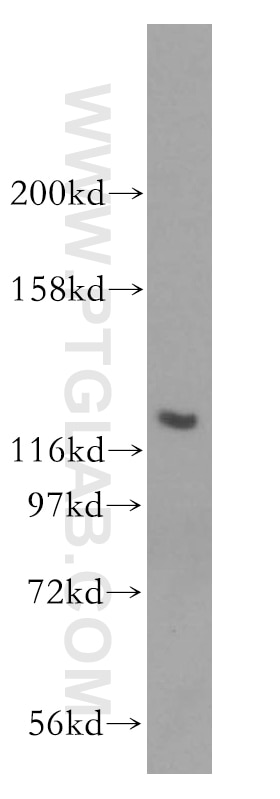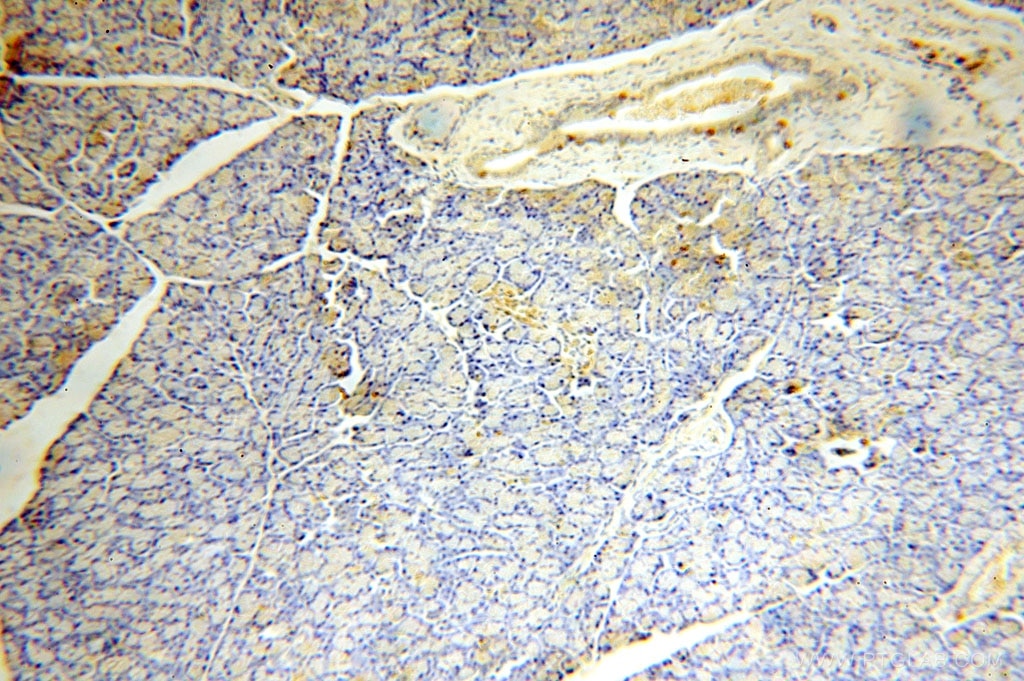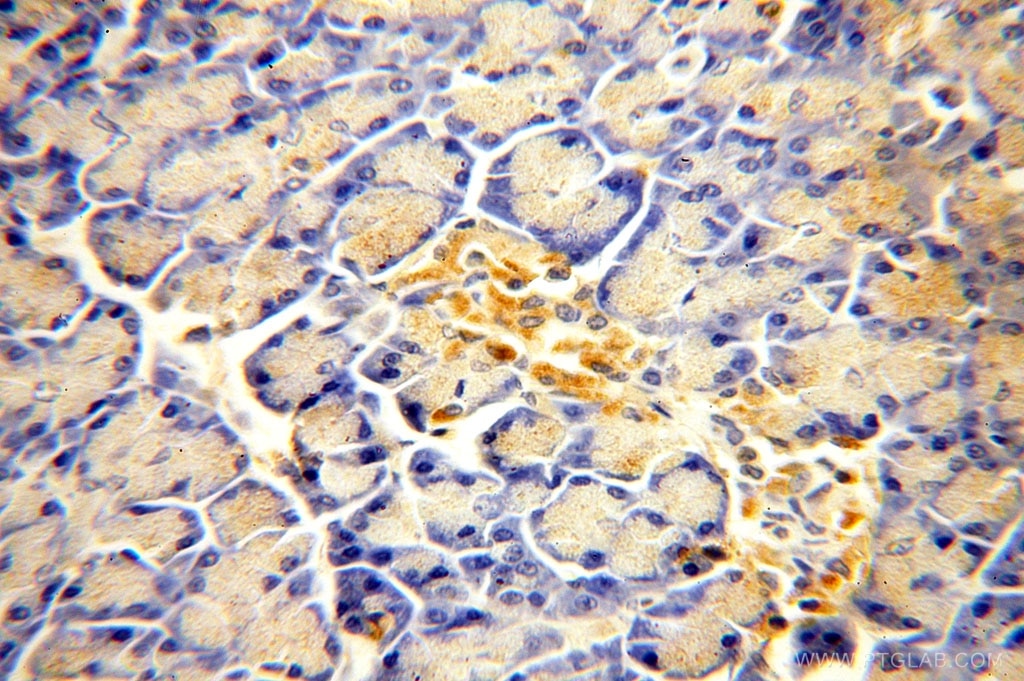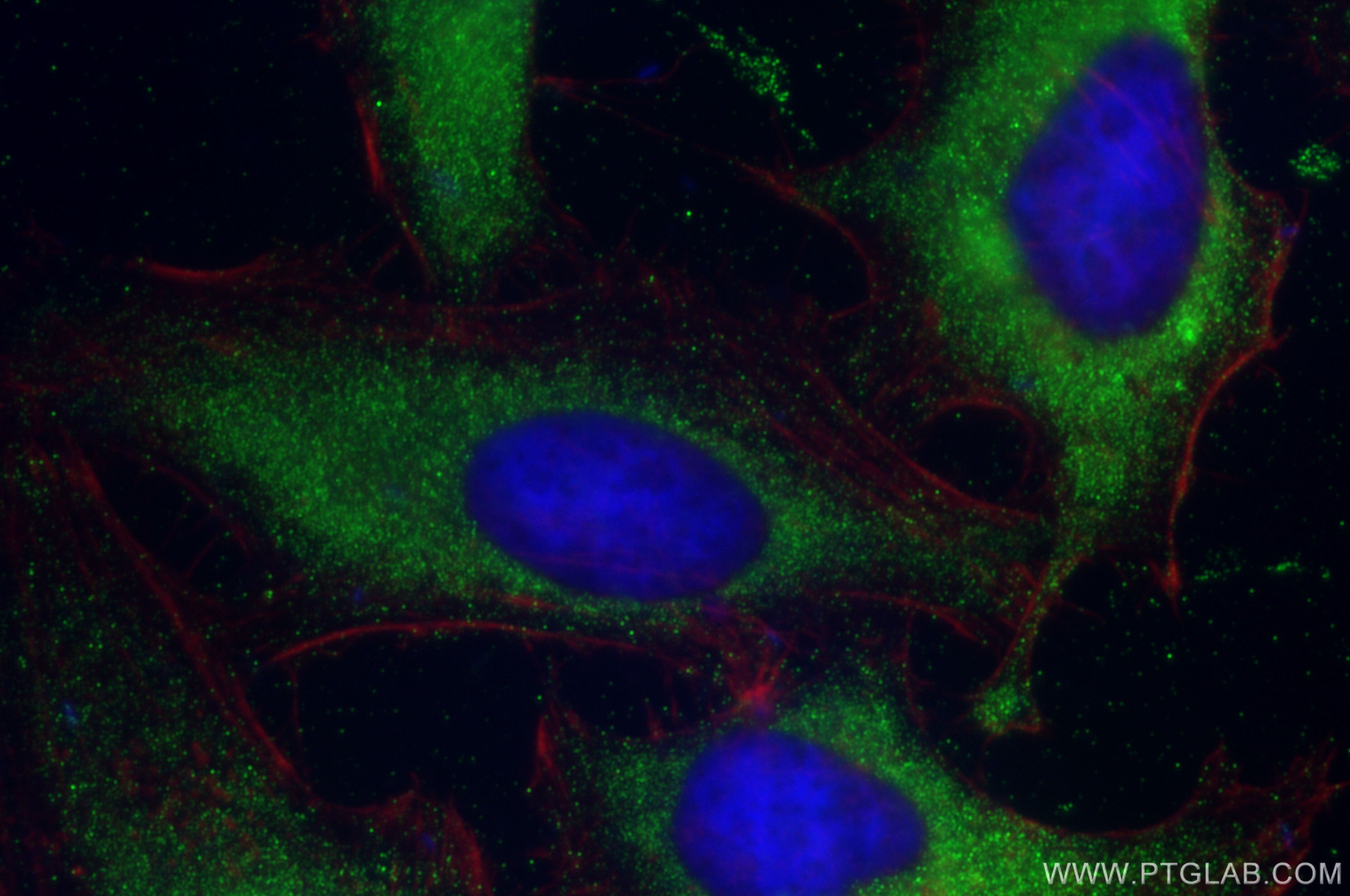Validation Data Gallery
Tested Applications
| Positive WB detected in | mouse spleen tissue |
| Positive IHC detected in | human pancreas tissue Note: suggested antigen retrieval with TE buffer pH 9.0; (*) Alternatively, antigen retrieval may be performed with citrate buffer pH 6.0 |
| Positive IF/ICC detected in | HeLa cells |
Recommended dilution
| Application | Dilution |
|---|---|
| Western Blot (WB) | WB : 1:500-1:1000 |
| Immunohistochemistry (IHC) | IHC : 1:20-1:200 |
| Immunofluorescence (IF)/ICC | IF/ICC : 1:200-1:800 |
| It is recommended that this reagent should be titrated in each testing system to obtain optimal results. | |
| Sample-dependent, Check data in validation data gallery. | |
Published Applications
| KD/KO | See 1 publications below |
| WB | See 1 publications below |
Product Information
17161-1-AP targets ACAD10 in WB, IHC, IF/ICC, ELISA applications and shows reactivity with human, mouse, rat samples.
| Tested Reactivity | human, mouse, rat |
| Cited Reactivity | human, mouse |
| Host / Isotype | Rabbit / IgG |
| Class | Polyclonal |
| Type | Antibody |
| Immunogen | ACAD10 fusion protein Ag10510 相同性解析による交差性が予測される生物種 |
| Full Name | acyl-Coenzyme A dehydrogenase family, member 10 |
| Calculated molecular weight | 26 kDa, 119 kDa |
| Observed molecular weight | 119 kDa |
| GenBank accession number | BC015056 |
| Gene Symbol | ACAD10 |
| Gene ID (NCBI) | 80724 |
| RRID | AB_2219552 |
| Conjugate | Unconjugated |
| Form | Liquid |
| Purification Method | Antigen affinity purification |
| UNIPROT ID | Q6JQN1 |
| Storage Buffer | PBS with 0.02% sodium azide and 50% glycerol{{ptg:BufferTemp}}7.3 |
| Storage Conditions | Store at -20°C. Stable for one year after shipment. Aliquoting is unnecessary for -20oC storage. |
Background Information
ACAD10(Acyl-CoA dehydrogenase family member 10) belongs to the acyl-CoA dehydrogenase family. ACAD10 has significant activity towards the branched-chain substrates R and S, 2 methyl-C15-CoA and is highly expressed in fetal but not adult brain. This pattern of expression is similar to that of LCAD, another ACAD previously shown to be involved in long branched chain fatty acid metabolism(PMID:21237683). It has 4 isoforms produced by alternative splicing.
Protocols
| Product Specific Protocols | |
|---|---|
| WB protocol for ACAD10 antibody 17161-1-AP | Download protocol |
| IHC protocol for ACAD10 antibody 17161-1-AP | Download protocol |
| IF protocol for ACAD10 antibody 17161-1-AP | Download protocol |
| Standard Protocols | |
|---|---|
| Click here to view our Standard Protocols |
Publications
| Species | Application | Title |
|---|---|---|
Cell Mol Life Sci ACAD10 and ACAD11 allow entry of 4-hydroxy fatty acids into β-oxidation
|



